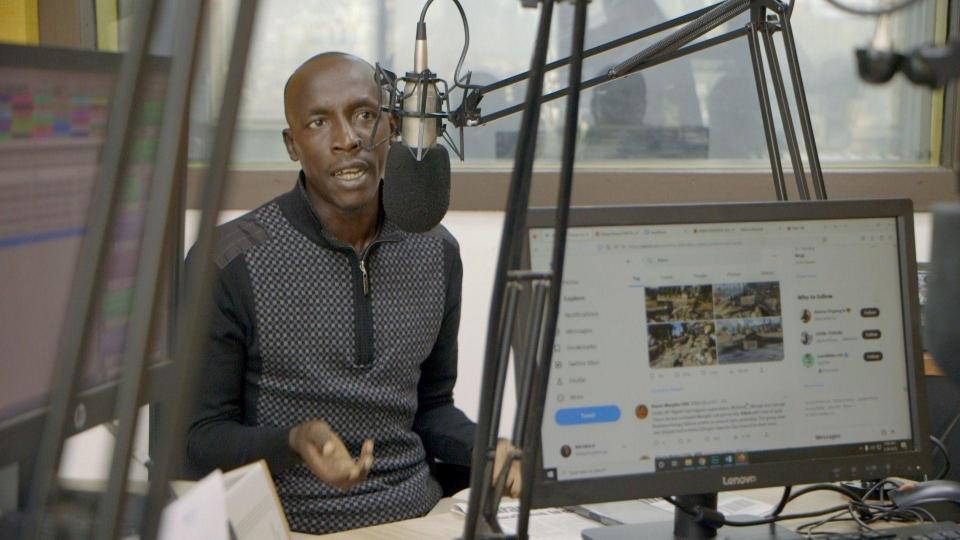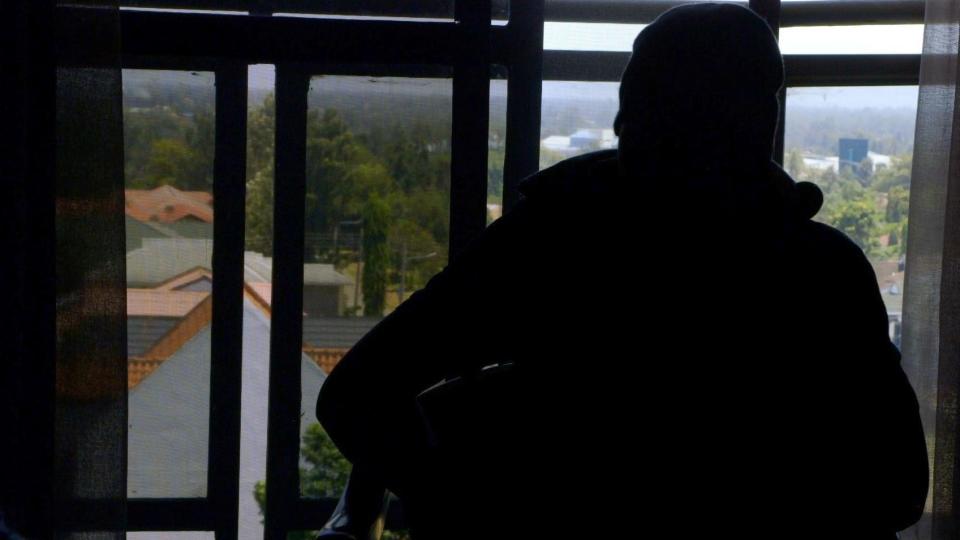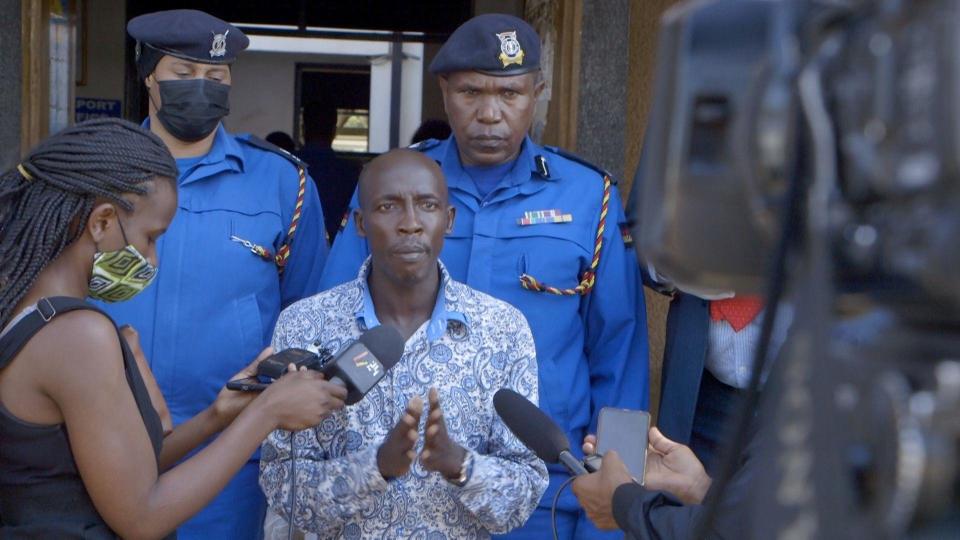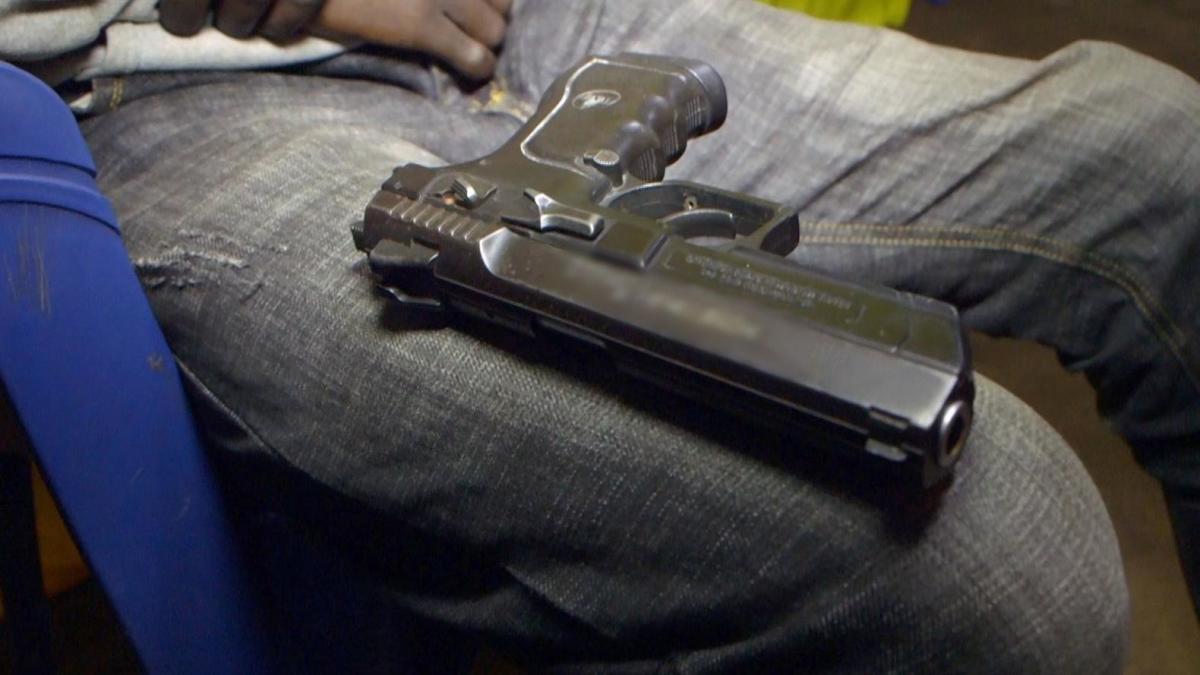As Kenya battles with increasing violent criminal activity, BBC Africa Eye follows one previous criminal as he attempts to encourage guys to kip down their unlawful guns, one weapon at a time.
“The worst thing I ever did was to eliminate. I eliminated a guy,” the boy states after consenting to be shot on condition of privacy.
“I did not feel anything, since I was high up on drugs. I seemed like I had actually eliminated a fly.”
Samuel, which is not his genuine name, remains in Kisumu on the edge of Lake Victoria in the west of Kenya, to satisfy King Kafu, a previous convict who now assists individuals avoid criminal activity.
He is noticeably anxious. He has an AK47 in a concealed area that he now wishes to hand in to the cops.
Asked why, he states: “A day will come when my household won’t have anything to consume. They will get injured ultimately.
“If I go and mess around, and after that get shot, no-one will exist to look after my household. So I chose, from my heart, let me return this thing.”
Figures from the Kenya National Bureau of Stats reveal violent burglaries increased by practically 20% in 2015.
Prohibited guns are smuggled into the nation through its permeable borders, making Kenya’s civilian belongings of weapons unique in East Africa, according to the Institute of Security Research Studies.
The most recent figures from the Little Arms Study, which tracks international weapons patterns, recommend there are some 750,000 guns in civilian hands in Kenya. That is more than the army and cops integrated.
Kafu functions as an intermediary in between individuals who wish to hand in their weapons and the cops.

He was 15 when he initially entered criminal activity. It began with nabbing individuals’s bags, however then he carried on to heists.
In 2003, he was sentenced to 4 years in jail for burglary.
Samuel had actually called him on Instagram requesting aid. Kafu spoke with the regional cops in Kisumu and they accepted accept Samuel’s weapon, guaranteeing he would not be examined in line with a reputable amnesty program.
However when it was time to satisfy up once again with the AK47, Samuel did disappoint up.
Kafu, now 40, is a speaker on Ghetto Radio, a station popular amongst youths in the shanty town locations of the capital, Nairobi, and utilizes his platform to speak up versus weapon violence.
“Upon my release, I found much of my pals who were associated with criminal activity had actually fulfilled awful ends, the majority of them passing away as an outcome of their criminal way of lives,” he states.
It was this that made him turn his life around.
“No-one is born a burglar. However even if the youths don’t have work, we are informing them that criminal activity is bad. Individuals must return their unlawful weapons to the federal government,” he states.
In the last twenty years the Kenyan federal government has actually utilized amnesties as a method of managing weapon criminal activity, appealing resistance to those who surrender their weapons.
Countless weapons have actually been handed in to the authorities. However this is a small portion of the unlawful guns in flow.


One criminal informed BBC Africa Eye that getting a weapon in Kenya was simple. He stated he might purchase one for 40,000 Kenyan shillings ($300; £240).
Kafu states individuals ready to turn over their unlawful guns to the authorities fear they may end up being a target themselves.
The cops have actually been implicated of being associated with extra-judicial killings. Kenyan charity Missing out on Voices states more than 800 individuals passed away at the hands of officers in the last 5 years. Most of them were bad boys.
In Nairobi, BBC Africa Eye chooses Kafu to satisfy another guy, who we are calling John, ready to quit his weapon.
“I am all set to return it. You go and eliminate somebody. You will invest the cash you get for it within 3 months, however you have actually shed somebody’s blood. You have actually injured somebody and been entrusted the regret. That life is problem.”
John’s most significant worry of going to the cops was that something would take place to him.
He explains what took place to a buddy who confided in a senior in the neighborhood that he wished to give up 2 weapons. He was gotten by the cops and after that discovered in a mortuary a week later on.
“The issue is trusting who to inform, how to hand it in,” he states.
There have actually been prevalent accusations of Kenyan cops working with and offering guns and ammo to lawbreakers. BBC Africa Eye put this claim to the cops, however they did not react.


Kafu called the regional cops chief to assure the guy about his security and a couple of days later on they went to the police headquarters together with the weapon.
The officer inspected the identification number on the weapon and it had a KP mark which is brief for Kenyan Cops.
At a cops interview revealing the return of the weapon, Kafu made a public declaration to ensure the cops duplicated their dedication to keeping these guys safe.
“I desire the federal government to be clear with the youth. When they return these things, will they be vanished or supported? I am asking the federal government to comply. These youths wish to be revealed some love.”
This alone will not stop violent weapon criminal activity in Kenya, however Kafu states it’s a start. Wrongdoers trust him, he states, and hopes he can motivate more individuals to surrender their weapons without worry of retribution.
“We are attempting to combat for these youths,” states Kafu.
More BBC Africa Eye stories:


Go to BBCAfrica.com for more news from the African continent.
Follow us on Twitter @BBCAfrica, on Facebook at BBC Africa or on Instagram at bbcafrica
